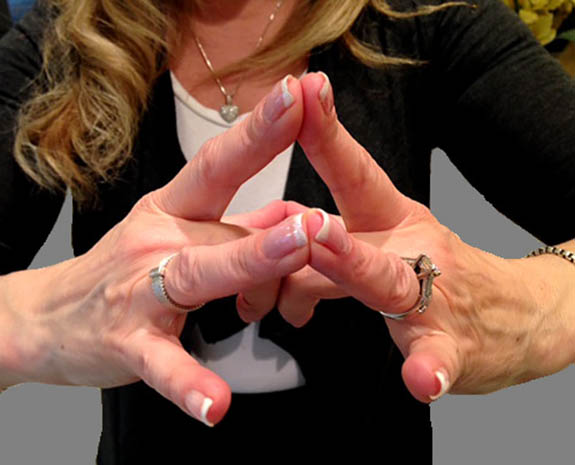For thousands of years, wedding rings have been worn on the ring finger of the left hand, but do you know the origin of this worldwide tradition?
Some give credit to the ancient Romans and Greeks, who believed that the vein in the fourth finger of the left hand (the vena amoris or vein of love) ran directly to the heart. Although the “vein of love” story is compelling and widely cited, a contemporary understanding of the human circulatory system has soundly debunked the science behind the legend.
The Chinese have a different take on the tradition. We love their theory because it comes with a sweet explanation and head-scratching, step-by-step demonstration.
The Chinese believe that each finger is a representation of the past, present and future generations of you and your family members. The thumb represents your parents, the index finger represents your siblings, the middle finger represents you, the ring finger represents your partner and the pinky represents your children.
Now give this a try…
• Place your palms together as if you were praying.
• Then, with all the fingertips still touching, bend the middle fingers toward each other until their tips are pointing downward into your palm and the second knuckle of each middle finger is touching the other. Remember, the middle fingers represent you.
• Now, attempt to separate the pinkies. You certainly can, because the pinkies represent your children, who will eventually leave your home and build families of their own.
• The thumbs that represent your parents can separate easily, as well, because your parents are not destined to live with you forever.
• Your index fingers separate with no resistance, as these represent your siblings, who will go on to live life on their own.
• Now, attempt to separate the ring fingers, which represent your partner. They don’t budge. No matter how much you try, they won’t come come apart.
The Chinese reasoning is that the union between you and your partner is unbreakable, and a wedding ring worn on the ring finger represents a marriage that is meant to last forever.
Anatomically, here’s how the phenomenon works… There is a common muscle called Extensor Digitorum that has little connectors between the tendons that go to the backs of each finger that allow them to extend all the way. The thumb is separate, but in addition to this muscle, the pinky has a second muscle called Extensor Digiti Minimi and the pointer has a second muscle called Extensor Indicis. When you bend the middle fingers, you fix the tendons of the Extensor Digitorum and without a second muscle to assist, the ring finger is stuck.
A practical explanation of why the wedding ring is worn on the fourth finger of the left hand focuses on the practicality of keeping the ring out of harm’s way. Since most people are right-handed, wearing the ring on the left hand would make it less susceptible to damage. Also, the ring finger doesn’t get as much work as, say, the thumb and index finger, so the little-used ring finger is a good place to display the bridal jewelry.
Credits: Bridal image by Bigstockphoto.com; Hand images by The Jeweler Blog.



















